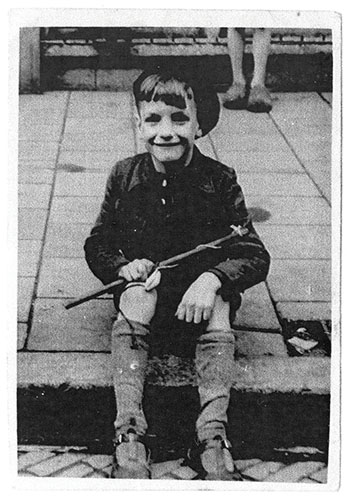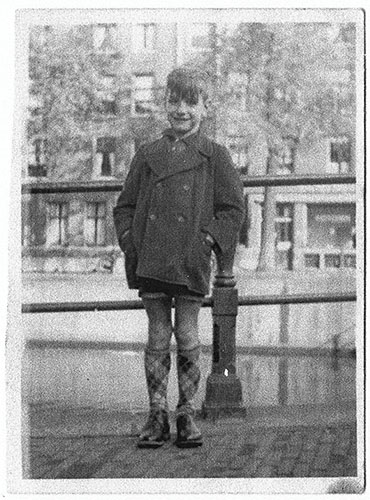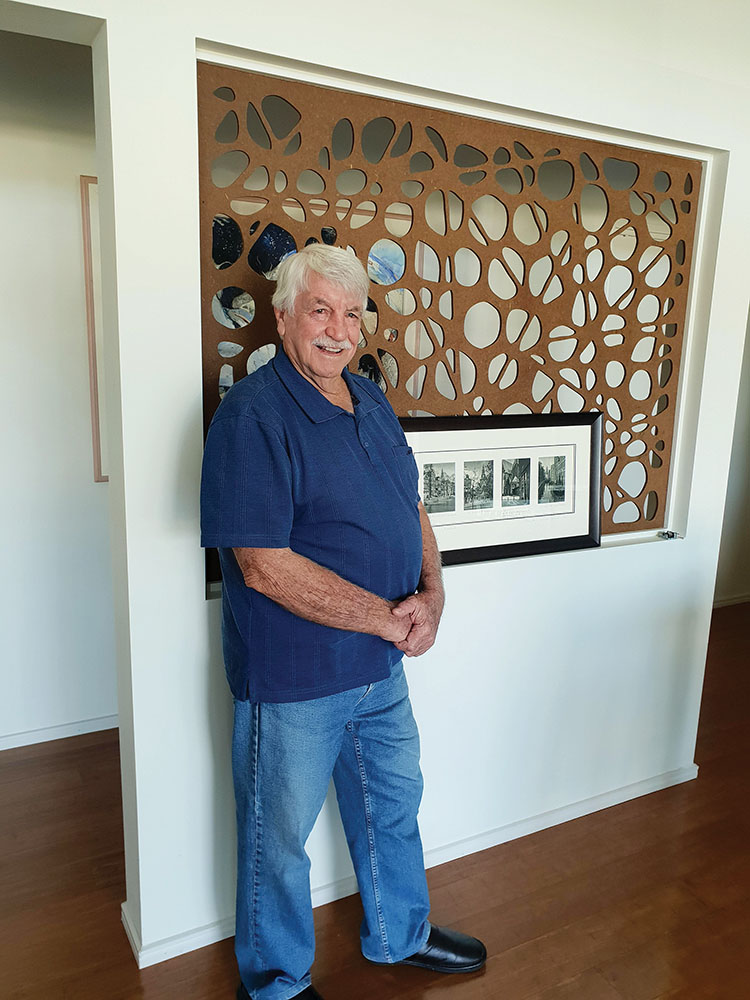In A Strange Country

A TRUE STORY BY GERRY BRAND
“This is my story. The story of how I came to be in Australia.”
After the second World War our family were always going to go to the USA. My mother had an uncle who had a shop in New York, and she wrote to him to see if he would be our sponsor. He said he would, but in order to leave Holland at that time you needed a tax clearance which took longer than expected. When it finally came, Uncle Piere was sick and couldn’t sponsor us. The next cab off the rank was Australia.
We were allocated a World War II Liberty Ship named the Fairsea which was converted into two dormitories, male and female, with three-tier bunks. This took six months more than expected and we finally left Amsterdam on the 18th April 1952.
We headed for the Dutch West Indies where we were to fuel up, then on to the Panama Canal. Two days later we were on our way to Tahiti, a very nice place, then on to Wellington in New Zealand. As we headed towards Sydney we got into a Force 5 cyclone. Everybody was very sick and I remember my dad took me on to the top deck where the fresh air picked us up a bit.
At Wellington we had dropped off quite a few passengers. Sydney was the same where more disembarked. In Sydney we were anchored beside the Harbour Bridge so my mate and I went into one of the stone columns and preceded to climb up the steel internal stairs. Moments later a train passed over us and the noise was deafening and scary. We hung on to the rails with all our might. When the train passed, we quickly went back the way we had come.

The next day we were on our way to Melbourne, where we boarded a train to Albury Wodonga. A few more buses took us to Bonegilla, an ex army camp and now a migration centre. We arrived in the dark and it was pouring rain. We had been given twenty pounds landing money, but as we were next to the Australian Alps with snow capped mountains, we were freezing. It was now the 28th of May. Some government official had told us that we were going to a hot climate and would not need our winter clothes, so the twenty pounds was spent the next morning on warm clothes.
My father was offered a job as an interpreter as he could speak English and German. However, he did not like the cold and he found out that Brisbane was the place for him, not too hot or cold, so he set off after two weeks, hitch hiking to Brisbane. The economy in 1952 was not all that good, so he was not able to find a job as a mechanic. However, he saw an advertisement in the paper for a job for a boundary rider checking on fences out at Longreach. As he had been in the Dutch Cavalry as a young man, he decided to take it on but but after three months he developed boils on his rear end, so he had to give it away. In the meantime, my mum and I arranged to go to another migrant camp in Brisbane at Wacol, and in late July/August she found a job in the kitchen of the police barracks and we found lodgings with a baker in Fernberg Road, Rosalie.
When my father came back from Longreach, again he could not find a job. (Everybody said Australia was a poor country, but they were actually wrong. At that time we were really rich but did not know it. Now they think we are rich but we are actually poor with a huge national debt).
Once again Dad took a train north, to Mackay this time. He didn’t find any mechanical work there but he found a job with a watchmaker, Mr Anderson. In the second World War dad had been in the Dutch underground and stayed for a time with a watchmaker. After a few weeks the stockpile of watches had been reduced but Mr Anderson had a mate in Eungella Hotel who needed a mechanic to do a valve job on his 1926 Chrysler Ute. So off went dad to Eungella. The motor job didn’t take that long, but he was then given the job of painting the hotel and my mother was offered work in the kitchen. So off we went to Mackay!
We landed in Mackay from Brisbane too late to catch the train to Netherdale, which had left earlier at 3pm, so that night we slept in a railway carriage only to slide off the seat at 5am when the locomotive was hitched to the train. We then walked to the waterfront where there was a food van.
We only had enough money for some toast so at 3pm we caught the train to Eungella, a very pretty journey, much like the train ride from Cairns into the mountains, only this train stopped at Netherdale at the bottom of the mountain range.
We were picked up by Sprogue, the owner of the hotel in his repaired 1926 Chrysler. I liked this place instantly. We had a room overlooking the valley. (Eungella is an aboriginal word for “Land in the Clouds”), and indeed some mornings we would wake up to see the whole of the valley filled with clouds.
My mother lasted a week before she up and took off. A week later I woke up one morning, my father also gone, and a note saying that Mrs Sprogue had said to him that she had no children and that I would be better off to stay with her. There I was, just a young lad with very little English in a strange new country, however I soon learned to love the place. Mrs Sprogue gave me plenty of pocket money and Mr Sprogue gave me a potato bag which he said I was to take to the School of Arts after the Saturday night dance and collect the empty beer bottles. I very soon had two bags full after only a few weeks for which he received twenty-two pounds, two weeks wages today.
It was soon Christmas and I remember Mrs Sprogue introduced me to a Mrs Rotherford who had a cattle station outside of Rockhampton. She introduced me as her little Dutch boy who had arrived six weeks earlier and couldn’t speak a word of English. I remember Mrs Rotherford saying that you can’t learn English in that short time. (It is easier if you are not communicating mostly in your first language). Tourist buses came up the range (2000ft) every Sunday. The tourists would get off the bus and some would ask me where the lavatory was. I would just shrug and point to the fern tree and a palm tree. Some days later I passed the toilet door and it said “Lavatory”. That was an a aha! moment.
One Sunday, one of the tourists asked me if I could climb this tree and pick an orchid for her. Another lady said she would give me five shillings for one. I was pretty pleased with that. On the first day of going to school I saw a large snake slithering across to the other side of the dirt road. I pulled on its tail and the snake whipped around back towards me. I’ve had a healthy respect for snakes ever since!
At the end of May, dad wrote to me to say they had a nice flat in Sandgate overlooking the Bay. I then went to school in Sandgate for three and a half years before we moved on again. I went on to various jobs and in 1958 scored myself an apprenticeship in signwriting. Later I went into building and land development and became a successful Aussie.
Australia is a great nation and my story is just one example of what opportunities you have in this country if you try.

Gerry Brand (A poor little Dutch Boy in a Strange Country)
Gerry is a resident of the My Home and the River Community